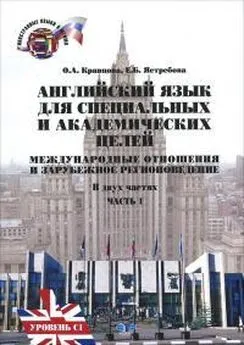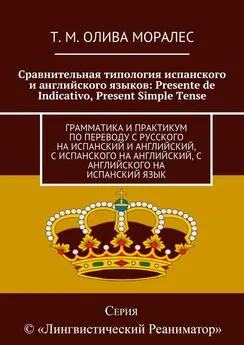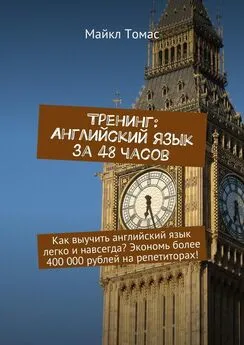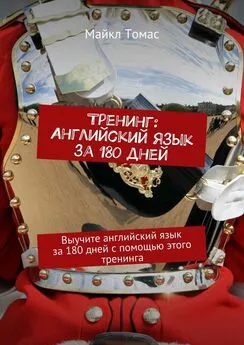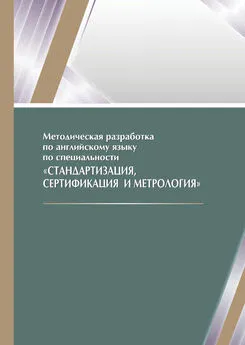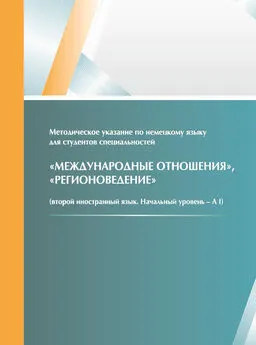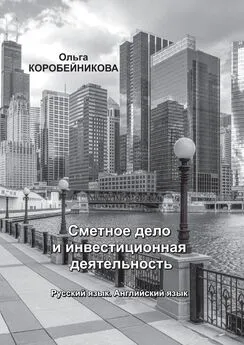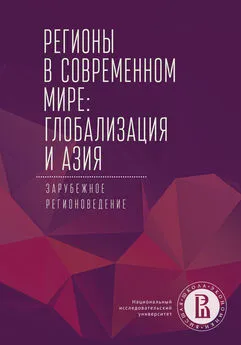Ольга Кравцова - Английский язык для специальных и академических целей: Международные отношения и зарубежное регионоведение. Часть 1
- Название:Английский язык для специальных и академических целей: Международные отношения и зарубежное регионоведение. Часть 1
- Автор:
- Жанр:
- Издательство:МГИМО-Университет
- Год:2015
- ISBN:978-5-9228-1210-8
- Рейтинг:
- Избранное:Добавить в избранное
-
Отзывы:
-
Ваша оценка:
Ольга Кравцова - Английский язык для специальных и академических целей: Международные отношения и зарубежное регионоведение. Часть 1 краткое содержание
Адресовано студентам четвертого курса факультетов и отделений международных отношений и зарубежного регионоведения.
Английский язык для специальных и академических целей: Международные отношения и зарубежное регионоведение. Часть 1 - читать онлайн бесплатно полную версию (весь текст целиком)
Интервал:
Закладка:
The Reader
In France, Nicolas Sarkozy set an annual budget for his establishment at the Elysee of 110 million euros (£90 million). Last year, the French head of state's expenses were audited for the first time since the reign of Louis XVI; it revealed a flower bill of 275,809 euros and 3,000 euros in fines for late payment of electricity and gas.
Although the monarchy undoubtedly represents value for money, its true worth cannot be expressed in financial terms. It is the personification of the nation, the embodiment of our national identity. The monarchy is living history, a pageant of our past that remains relevant in the present and will continue to do so in the future. Constitutionally, it is the guarantor of stability: during the political impasse that followed the general election and the protracted negotiations, our governmental process did not miss a beat, since the Queen remained as the constitutional authority, ensuring continuity.
She also gives authority a human face. In other countries, how many hospital wards are significantly cheered by the visit of a republican head of state, usually a political retread with partisan baggage? The additional advantage of a royal family, with several members carrying out official duties, is that many more engagements can be accommodated than any single president could ever perform. Bagehot also recognised that a family at the apex of society generated more interest than a solitary individual.
In 2012, the Queen will celebrate her diamond jubilee. As a nation, we shall have much to give thanks for on that occasion. In faithful fulfilment of the promise she made on her accession to the throne, the Queen has served her people with total dedication. May she do so for years to come.
June 9, 2014 http://yugov.co.uk/news/2014/06/09/changing-politics-social-class/
British comedy can tell us a thing or two about social class in modern Britain
As so often, some of the sharpest political insights come not from the sage columnists of our upmarket papers but from comedy writers. They have noticed — and exploited — some of the social class cross-currents that conventional analysis has tended to overlook.
Fifty years ago, things were so much simpler. The working classes voted Labour while the middle classes voted Conservative. In 1967 Peter Pulzer, a distinguished political scientist, wrote: “Class is the basis of British politics. All else is embellishment and detail.” He had good reason to say this. Labour had won the general election a year earlier by winning more than 60% of working class votes. It secured the votes of only one in four middle class voters, who preferred the Tories by more than two-to-one.
Today, Britain's economic and social structure is completely different; and so is the nature of party loyalties. Using the same yardstick as in the 1960s — whether the job of the head of each voter's household is essentially manual (“C2DE”) or non-manual (“ABC1”) — the class gap is far narrower. In YouGov's survey for Prospect of more than 3,000 electors, Labour enjoyed a 1% lead among ABC1 voters, and a 6% lead among C2DE voters — a class gap of five points.
However, these figures fail to tell the full story. Social class may no longer affect votes as powerfully as it used to — but its influence is still far greater than conventional polls suggest.
As well as ascertaining their conventional class position, we asked people whether they regarded themselves as “working class”, “middle class” or “upper class”. It turns out that almost one adult in three gives the “wrong” answer: nine million ABC1 adults consider themselves working class, while five million C2DE adults say they are middle class. (Only 1% called themselves upper class.) As far as I know, no equivalent data exists for the Fifties or Sixties, but it is hard to believe that the equivalent cross-over figures would have been anything like as high.
The Reader
Does this matter? Isn't social class a relic from the era of factories, coal mines, shipyards and steelworks, of little relevance today? One reason why it deserves attention concerns people's party loyalties. When we analyse party support by the social class people give themselves, we find a much larger gulf between “middle” and “working” class voters than between ABC1 and C2DE voters.
Among “middle class” voters, the Tories lead Labour by 16 — while Labour is 21% ahead among “working class” voters. This time the class gap is a huge 37 points. The link between occupation and politics may have fractured, but that between people's self-perception and party support still matters.
To dig deeper into this, we combined “objective” and “subjective” social class data, to create four groups, represented here (and with admittedly insulting stereotypes) by characters from British comedy:
The first two represent people whose objective and subjective status are the same:
"Captain Mainwaring", the banker from Dad's Army who seeks to assert his superior status: ABC1 and middle class;
"Alf Garnett", the central character from Till Death Do US Part: working class and proud of it.
The other two represent the crossover groups:
"Dave Spart" — Private Eye’s middle-class revolutionary, who regards himself as working class;
"Hyacinth Bucket" — the snob with working class roots in Keeping Up Appearances, forever trying to inflate her social status. (See the notes for more details on the characters)
We find that the politics of the two crossover groups are driven far more by their "subjective" than their "objective" social class. Indeed, if anything, their attachment to their favoured party is slightly stronger than those whose "subjective" and "objective" locations are the same. Thus the Tory lead among Britain's Hyacinth Buckets is higher than among its Captain Mainwarings, while Labour does slightly better among the Dave Sparts than the Alf Garnetts — which, I suspect is precisely what the creators of these characters would predict if they all got together. And it will come as no surprise to them that Britain's Alf Garnetts — the C2DE folk who regard themselves as working class — provide more fertile ground for Ukip than any other group.
So: social class still plays a significant role in British politics; but how? Half a century ago, class experiences, loyalties and attitudes were rooted in ideology. Most working-class voters wanted more nationalisation, strong trade union, ambitious public spending programmes and higher income taxes (which largely came from people with middle-class jobs). That was why they voted Labour. The middle classes generally had little enthusiasm for any of these things (although, until Margaret Thatcher, few wanted to turn the clock back to small-government laissez-faire) and voted Conservative.
What are today's political dividing lines between the classes? We listed seventeen policy ideas and asked people whether they agreed or disagreed with each. We were looking not so much for the overall balance of support for each policy, but for the extent to which “middle class” and “working class” voters differ.
The Reader
The widest gulf concerns immigration. A big majority of “working class” voters want it stopped completely; “middle class” voters are evenly divided. Working class voters are also significantly more likely than middle class voters to distrust MPs as a whole, to think that Britain has changed for the worse in the past 20-30 years and to want the death penalty for those who kill police officers.
The notable thing about those dividing-line issues is that they are all cultural rather than ideological. On these, class divisions are far narrower. Big majorities on both sides of the class divide support renationalization of Britain's railways — and oppose a bigger role for private companies in the NHS. Both groups are divided on the trade-off between taxes and public spending, on whether trade unions have done more harm than good, and on whether most recipients of welfare benefits really need the money.
There are bigger differences on the more specific issue of business leaders. Working class voters are far more critical of their motives and their ability to command million-plus salaries. Concerns for equity (or, if you prefer, the politics of envy) still have a class dimension. But even these can be regarded as cultural more than ideological matters.
However, on two other cultural issues, there is no class gap at all: middle and working class voters are equally divided on the decriminalising the possession of small amounts of cannabis — and majorities of both groups want to keep the new law permitting gay marriage.
This analysis helps to explain one of the big political trends of the past sixty years — the declining dominance of the two big, ideologically-rooted, parties, and the rise of the Liberal Democrats, the Greens, the Scottish National Party — and, now, Ukip.
At the time of writing, the votes in the European Parliament elections have yet to be cast; but, for second successive election, it looks as if the combined Labour and Conservative vote will be less than 50% of all votes cast. True, this is a second-order, low-turnout election in which people feel able to cast a protest vote without risk. But it does underline how both Labour and the Tories have struggled to keep pace with the changes in British society.
Those who believe that either social class still matters in the traditional way, or doesn't matter at all, are both wrong. Social class is still a significant factor in British politics, but the nature of that factor has changed utterly. In this, as in so much else, the past is truly another country.
1. Captain George Mainwaring (/'mansrio/) is the bank manager and Home Guard company commander portrayed by Arthur Lowe on the BBC television sitcom Dad's Army, set in the fictional seaside town of Walmington-on-Sea during the Second World War. He has become widely accepted and regarded as a classic British comic character owing to both the popularity of Dad's Army and Lowe's portrayal of him in this show. George Mainwaring is a pompous, blustering figure with overdeveloped sense of his importance, fuelled by his social status.
2. Alf Garnett is a fictional character from the 1960s & 1970s British sitcom Till Death Us Do Part and its follow-on and spin-off series in the 1980s and early 1990s Till Death... and In Sickness and in Health. Alf was a working class man, forever complaining that he worked and worked and yet lived somewhere near the poverty line, and was a staunch supporter of the Conservative Party, although he didn't support one-time leader Margaret Thatcher, because he believed that a woman's place was at home "chained to the bloody kitchen sink!"
3. Private Eye is a fortnightly British satirical and current affairs magazine, edited by Ian Hislop. Dave Spart — ultra-left wing activist, always representing a ridiculous-sounding union (such as the National Amalgamated Union of Sixth-Form Operatives and Allied Trades), collective or magazine. Spart's views attempt to highlight alleged misconduct, prejudice or general wrongdoing, but often end up being contradictory and illogical.
4. Keeping Up Appearances is a BBC television sitcom created and written by Roy Clarke for the BBC. Centred on the life of eccentric social climber Hyacinth Bucket (who insists that her surname is pronounced "Bouquet"), the sitcom follows the obsessive and determined snobbish middle class woman who desperately and continually looks for opportunities to climb the social ladder by attempting to impress people (particularly rich people) and portray herself as more affluent than she truly is, despite being wedged between a working class background and upper class aspirations.
Читать дальшеИнтервал:
Закладка:
